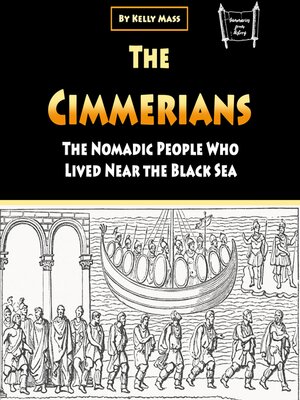The Cimmerians
audiobook (Unabridged) ∣ The Nomadic People Who Lived Near the Black Sea
By Kelly Mass

Sign up to save your library
With an OverDrive account, you can save your favorite libraries for at-a-glance information about availability. Find out more about OverDrive accounts.
Find this title in Libby, the library reading app by OverDrive.



Search for a digital library with this title
Title found at these libraries:
| Library Name | Distance |
|---|---|
| Loading... |
This audiobook is narrated by a digital voice.
Cimmeria, a bygone landmass comprising a series of microcontinents or terranes, detached from Gondwana in the Southern Hemisphere and merged with Eurasia in the Northern Hemisphere. Its expanse encompassed Turkey, Iran, Afghanistan, Pakistan, Tibet, China, Myanmar, Thailand, and Malaysia. During the Carboniferous-early Permian period, Cimmeria separated from the Gondwanan coastlines along the Paleo-Tethys Ocean and, as the Neo-Tethys Ocean emerged behind, the Paleo-Tethys Ocean closed in the Permian. Cimmeria's rift from Gondwana extended from Australia to the eastern Mediterranean, traversing diverse latitudes and climatic zones.
In 1883, Austrian paleontologist Melchior Neumayr proposed the concept of a "large, ancient Mediterranean Sea." Analyzing Jurassic faunas, he envisioned an equatorial ocean spanning from India to Central America, separating a substantial northern hemisphere continent from its southern counterpart. Eduard Suess, an Austrian geologist, named this ocean Tethys, differentiating Gondwanaland and a boreal continent. Alfred Wegener, a German geophysicist, presented Pangea as a unified global continent, challenging the idea of an equatorial ocean. Nevertheless, Samuel Warren Carey, an Australian geologist, suggested a wedge-shaped Tethys within Pangea in 1958. Eventually, Cimmeria emerged as a collection of waters divided by north-migrating terranes or continental blocks.







